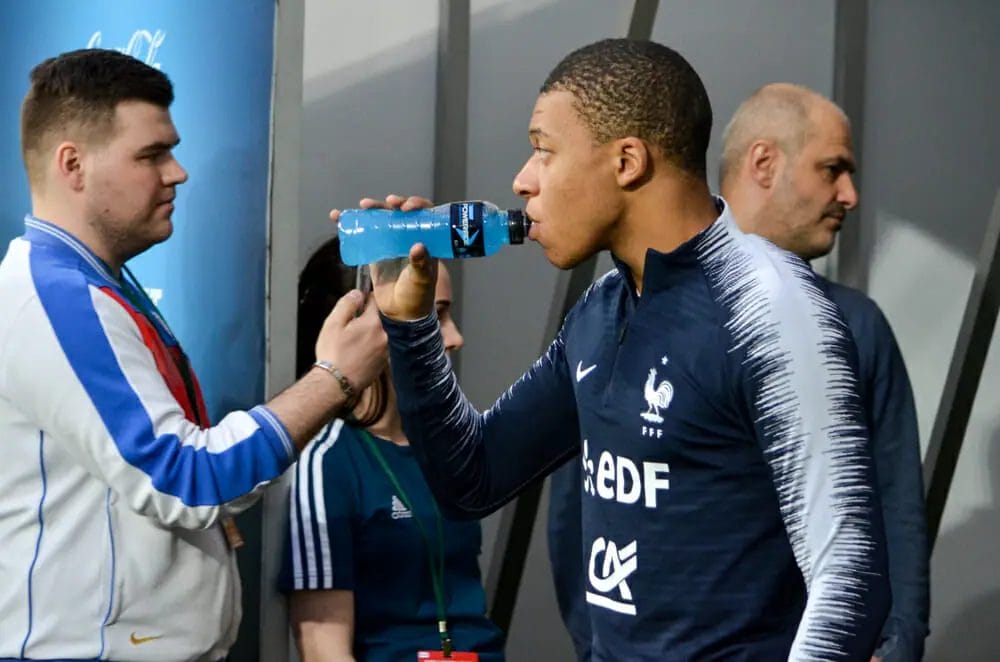The Role of Nutrition in the Success of Young Footballers
 Nutrition is an integral factor in the development and success of young footballers, offering a foundation that supports both physical performance and overall health. As the physical demands on young athletes continue to increase, so does the need for a tailored nutritional approach that caters to their unique needs.
Nutrition is an integral factor in the development and success of young footballers, offering a foundation that supports both physical performance and overall health. As the physical demands on young athletes continue to increase, so does the need for a tailored nutritional approach that caters to their unique needs.
This article explores how proper nutrition contributes to the success of young footballers, emphasizing key aspects such as energy provision, recovery, injury prevention, and long-term development.
Fueling Performance: The Energy Equation
For young footballers, energy balance is crucial. The demands of high-intensity training and competition require a consistent intake of calories to maintain energy levels, support growth, and optimize performance. Carbohydrates are the primary source of energy, fueling intense physical activity and ensuring sustained performance throughout matches and training sessions.
However, it’s not just about quantity but also the quality of carbohydrates consumed. Complex carbohydrates found in whole grains, fruits, and vegetables provide a steady release of energy, making them ideal for pre-match meals (SpringerLink) (Barça Academy US).
In contrast, simple carbohydrates, often found in sugary snacks, can lead to energy spikes followed by crashes, which can negatively impact performance. Therefore, young athletes should prioritize complex carbohydrates, particularly in the hours leading up to a game or intensive training. Additionally, proteins and healthy fats play supporting roles by aiding muscle repair and providing long-term energy reserves, respectively (Barça Academy US).
Recovery and Muscle Repair: The Role of Protein
Recovery is a critical component of a young footballer’s routine, and protein intake is central to this process. Proteins serve as the building blocks for muscle tissue, helping to repair and rebuild after the micro-damages that occur during intense physical activity.
A diet rich in high-quality protein sources such as lean meats, fish, eggs, and dairy is essential for young athletes. These proteins provide the necessary amino acids to facilitate muscle recovery and growth (ACFC Academy) (Football4Football).
Young footballers have higher protein needs compared to their non-athletic peers due to their involvement in regular and strenuous physical activity. This increased requirement helps in maintaining muscle mass and enhancing recovery times, which is particularly important during periods of intense training or competition (Barça Academy US).
Injury Prevention and Long-Term Health
Nutrition also plays a pivotal role in injury prevention. Adequate energy intake helps prevent the onset of overtraining syndrome, which can lead to fatigue, decreased performance, and a higher risk of injury. Moreover, micronutrients such as calcium and vitamin D are vital for bone health, while iron is crucial for oxygen transport in the blood, supporting overall stamina and reducing the risk of fatigue-related injuries (SpringerLink) (ACFC Academy).
Hydration is another key element in preventing injuries. Dehydration can lead to muscle cramps, reduced coordination, and impaired cognitive function, all of which increase the likelihood of injuries during both training and matches. Young athletes should maintain proper hydration levels by drinking water regularly throughout the day, especially before, during, and after physical activity (Barça Academy US).
The Mental Edge: Nutrition’s Impact on Focus and Learning
Beyond physical health, nutrition significantly influences cognitive function and mental acuity. A balanced diet rich in omega-3 fatty acids, antioxidants, and other essential nutrients can enhance focus, decision-making, and learning capabilities—all critical components of a young footballer’s game. Foods such as fatty fish, nuts, seeds, and green leafy vegetables are excellent sources of these nutrients (Football4Football).
Additionally, maintaining stable blood sugar levels through regular, balanced meals can prevent energy dips that might affect concentration and reaction times during matches. This not only supports physical performance but also ensures that young athletes are mentally sharp on the pitch, allowing them to make quick and effective decisions (ACFC Academy).
Conclusion
The success of young footballers is deeply intertwined with their nutritional habits. Proper nutrition provides the energy required for performance, supports recovery, helps prevent injuries, and sharpens mental focus. By understanding and implementing a well-rounded nutritional strategy, young athletes can significantly enhance their development and performance on the field. Coaches, parents, and the athletes themselves should prioritize education on nutrition to ensure that these future stars have every advantage as they pursue excellence in football.
References
- Journal of Science in Sport and Exercise
- The Football Hub
- ACFC Soccer Academy
- Barça Academy
- Football4Football







































